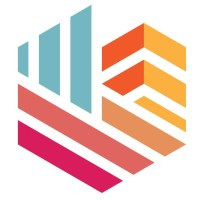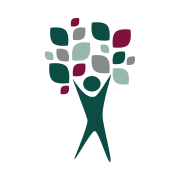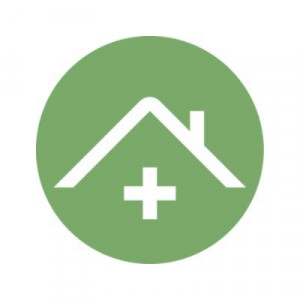Facility: 1800 Parkway Center
Job Summary:
This role will oversee Nursing Journeys of Excellence & Research/Data.
The Director of Nursing is a registered professional nurse who provides leadership and management of a specific service line through the application of advanced competencies in communication; job knowledge, professionalism and business skills. This leader is a member of the chief nursing officer's administrative team and may serve as her/his designee for assigned responsibilities. He/she reports to the nursing operations leader and demonstrates own leadership to effectively partner with nursing leadership, hospital vice presidents, medical staff and other departments to create a center of excellence for their specialty service and to meet or exceed the hospital's mission, vision and goals. This leader administers to two or more cost centers with a range of 50 to 200 FTEs in a hospital or specialty hospital in a smaller rural community area or system accountability for a domain of nursing practice. The Director of Nursing handles a budget less than 80 million dollars.
The Director of Nursing provides direct leadership for a group of nurse managers and others who comprise their specialty service line. He/she is a standard bearer and holds leaders and staff accountable for the delivery of safe, quality care and services through effective communication, employment of transformation leadership, managing by walking around, and instilling an accountability-based practice setting. The director of nursing serves as sponsor for performance improvement; inspires others to seek opportunities to grow and improve their performance and successfully applies lean and evidenced based practice to ensure all targets pillar outcomes are achieved. This leader employs all safety first interventions and as the chief safety officer creates a culture of safety for his/her service line through the development/use of these skills by other leaders, physicians and staff. He/she effectively uses data and technology to make decisions and proactively mitigates unnecessary risks for his/her area of responsibility, providing instruction and mentoring for assigned leaders to be able to do the same. This leader ensures that nurse managers and staff create a desirable, safe work environment that enables the organization to meet or exceed all licensure, regulatory and accreditation standards. He/She models the way by fostering exemplary skills in attaining effective teamwork and collaboration with physicians, staff, patients and other departments.
It is expected that all nurse leaders are licensed, knowledgeable and uphold the practice of nursing as outlined by the Georgia Professional Nurse Practice Act and implements the Scope of Practice and Code of Ethics Standards put forth by the American Nurses Association. As a member of the patient services team, it is expected the individual upholds the voice of the patient, system policies and procedures while supporting service excellence goals.
Core Responsibilities and Essential Functions:
Exemplary Practice and Outcomes
* a. Holds self and staff to the highest professional standards and ethics ensuring corporate compliance standards etc. are met by leaders and staff. Is an active member of ones professional community and serves as a role model for professional nursing practice and nursing leadership advances the field through transformational executive leadership, support of shared governance, and scholarly activity
* b. Successfully works with the nurse manager to employ change management strategies and instills in self and others the curiosity to explore new knowledge and ideas.
Resources and Support
* a. Engages leaders in decision- making and partners with others to promote patient centered care and service excellence while effectively providing leadership and management skills for a specific business/clinical unit, possesses strong and effective negotiation and mediation skills
* b. Serves to support the nurse managers to promote the effective running of the care delivery system and ensures that the clinical processes of care are working as intended. Serves as a resource for all leaders and accepts additional leadership responsibilities
* c. Analyzes and manages financial resources; uses lean and other quality skills to reduce waste and improve performance of operations and clinical systems of care; integrates marketing and communication strategies to advance ones service line and organization as a whole
* d. Hires and develops an engaged team of leaders and staff that raises each others performance to achieve top percentile standing in all pillar goals
Interdisciplinary Teamwork and Collaboration
* a. Effectively communicates to diverse audiences on nursing, health care and organizational issues and this includes the ability to set standards and holds leaders and staff accountable for performance standards. Proactively establishes a health work place by reducing unnecessary conflict - resolves it when necessary promotes and achieves positive team dynamics
* b. Establishes partnerships by employing strong relationship building skills with all hospital leaders and medical staff by striving to understand others (and situations) and keeping the long view in mind is fair and just using reflective practice skills to monitor self and leader performance/interaction skills exercising coaching and guiding skills
* c. Creates opportunities for self and leaders to grow professionally and implements a desirable workplace to recruit and retain talented leaders and staff
Professional Development
* a. Seeks opportunities to advance knowledge and skills through formal and information education offerings to enhance ones understanding of how healthcare is financed and how to manage a diverse nursing workforce.
* b. Represents the organization positively to the community, building credibility and willingness to serve on committees and taskforces as needed to share knowledge and skill; champion a service line or need; and seeks opportunities to advance skill and scope of responsibilities
Evidence Based Practice and Research
* a. Effectively identifies areas of improvement of leaders and clinical systems and sponsors projects to improve the same. Includes assuring nursing division meets or exceeds licensure, regulatory and accreditation standards.
* b. Applies the effective use of data and evidence to support decision making for clinical and operational responsibilities and demonstrates awareness of legal and ethical issues related to patient and staff data, information and confidentiality
Performs other duties as assigned
Complies with all Wellstar Health System policies, standards of work, and code of conduct.
Required Minimum Education:
- Bachelors Nursing
- Masters Nursing or Masters Other
Required Minimum License(s) and Certification(s):
All certifications are required upon hire unless otherwise stated.
- Reg Nurse (Single State) or RN - Multi-state Compact
- Basic Life Support or BLS - Instructor
Additional License(s) and Certification(s):
Required Minimum Experience:
Minimum 5 years of experience as a Registered Nurse; includes three (3) years of progressive operational leadership to include direct management of others and financial management. Required and
Experience managing department-level budget and metrics strongly Preferred
In lieu of masters degree, Must be enrolled in a graduate program with
completion expected within 12 months of hire date. Required
Required Minimum Skills:
Should possess excellent verbal and written communication skills and relationship building;
a knowledge of the health care environment;
leadership that includes such skills as successfully implementing and managing a change process ability to use systems thinking- and inspire, coach others to be successful;
model the way for professional practice;
professionalism and teamwork/collaboration for self/department/medical staff;
and possess necessary business skills to manage human and material resources.
Must be a continuous learner who understands health care financing;
strategy and operations for running a business unit(s);
and effectively employ data and technology to support work processes and make decisions.
Supports shared governance or shared decision making;
manage the design and delivery of care that in based on evidence and focused on quality and safety.
Knowledge of risk management and various accreditation/regulations/licensing requirements assuring that these are upheld while advancing industry standards through the achievement of goals by effective management and measurement of outcomes.









